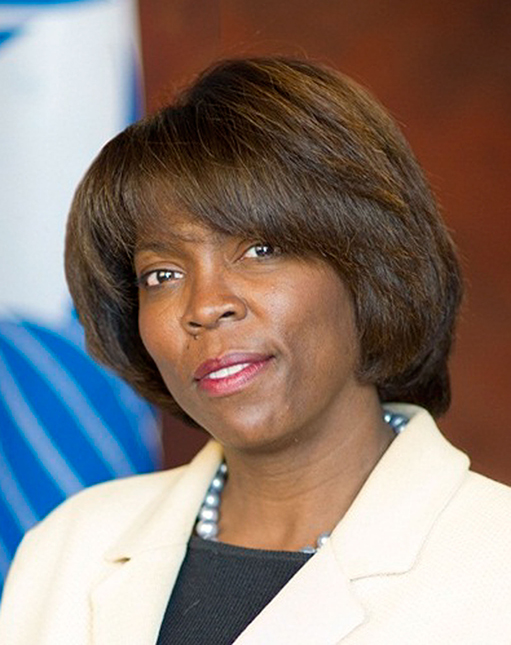The School of Law will welcome Ertharin Cousin, executive director of the United Nations World Food Programme, on Feb. 5 as the keynote speaker for the Georgia Journal of International and Comparative Law’s conference titled “International Law in a Time of Scarcity.”
The daylong symposium will begin at 8:30 a.m. in the Larry Walker Room of Dean Rusk Hall and will address global policy in relation to the scarcity of resources. Although the event is open free to the public, pre-registration is required for those wishing to be served lunch during the conference.
“We believe that the scarcity of resources, whether food, water, fuel sources or clean air, may be a defining reality for global policy in the years to come,” said Katie A. Croghan, conference co-organizer and third-year law student. “It is our hope that by bringing together leading policymakers and legal scholars, the conference will serve as a foundation for future policy and scholarship on the role of international law in scarcity issues.”
During her keynote address, Cousin will explore projects addressing agricultural problems including cooperatives to produce more food and stimulate production, nutrition and education in the time from conception to the second year of life and methods for helping communities deal with climate change.
Cousin, who is a 1982 Georgia Law alumna, has more than 25 years of national and international nonprofit, government and corporate leadership experience focusing on hunger, food and resilience strategies.
As the leader of the World Food Programme, a post she assumed in 2012, Cousin is responsible for helping the organization meet urgent food needs while championing longer-term solutions to food insecurity and hunger. Prior to this appointment, Cousin served as the U.S. ambassador to the United Nations Agencies for Food and Agriculture and as head of the U.S. Mission to the U.N. Agencies in Rome.
During the conference, policymakers and scholars from law schools across the country also will address how best to conceptualize and define the problem of scarcity, the regulation of scarcity and its potential impacts and how to work forward in addressing the problem from the current available solutions during various roundtable discussions throughout the day.
